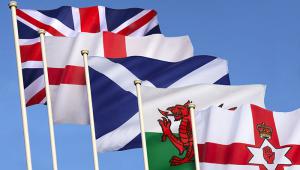By Jaimie Kaffash
7 May 2010
Regions are at risk of becoming ‘entrenched’ in a damaging public spending culture if nationalist parties are given too many concessions during the fight to secure a stable government, think-tanks have claimed.
Benjamin Williamson, economist at the Centre for Economics and Business Research, told Public Finance he was ‘concerned’ that a hung Parliament would prevent much needed cuts to public spending in the regions where it was highest.
‘The major parties might have to strike deals with the nationalist parties and the regional parties [to form a coalition],’ he said. ‘The priority for these national parties would be to protecting spending in their area. It’s a concern for us.’
A recent study by the CEBR revealed the UK regions that were most reliant on public spending as a high proportion of their gross domestic product. The state of the nation report showed that public spending as a share of GDP was 70% in Northern Ireland and Wales and 64% in the North East. This is compared with 35% in London and a UK average of 48.4%.
The study claimed that: ‘The high spending regions are inevitably going to face harsh withdrawal plans as the inevitable fiscal squeeze is applied.’
But Williamson said the election result meant it was now unlikely extra spending cuts would be targeted in these areas.
He added: ‘When public spending is higher, it crowds out the more dynamic private sector, which is what is needed to aid the recovery. We have called on those regions to reduce their public spending by ten percentage points over four years. This is fairly unrealistic now though.’
Kieran Larkin, an analyst at the Centre for Cities, agreed that giving too many concessions to nationalist parties would be wrong. ‘The devolved nations will push to make sure spending cuts are favourable. That does not make sense in the long term or in fairness,’ he told PF.
7 May 2010
Regions are at risk of becoming ‘entrenched’ in a damaging public spending culture if nationalist parties are given too many concessions during the fight to secure a stable government, think-tanks have claimed.
Benjamin Williamson, economist at the Centre for Economics and Business Research, told Public Finance he was ‘concerned’ that a hung Parliament would prevent much needed cuts to public spending in the regions where it was highest.
‘The major parties might have to strike deals with the nationalist parties and the regional parties [to form a coalition],’ he said. ‘The priority for these national parties would be to protecting spending in their area. It’s a concern for us.’
A recent study by the CEBR revealed the UK regions that were most reliant on public spending as a high proportion of their gross domestic product. The state of the nation report showed that public spending as a share of GDP was 70% in Northern Ireland and Wales and 64% in the North East. This is compared with 35% in London and a UK average of 48.4%.
The study claimed that: ‘The high spending regions are inevitably going to face harsh withdrawal plans as the inevitable fiscal squeeze is applied.’
But Williamson said the election result meant it was now unlikely extra spending cuts would be targeted in these areas.
He added: ‘When public spending is higher, it crowds out the more dynamic private sector, which is what is needed to aid the recovery. We have called on those regions to reduce their public spending by ten percentage points over four years. This is fairly unrealistic now though.’
Kieran Larkin, an analyst at the Centre for Cities, agreed that giving too many concessions to nationalist parties would be wrong. ‘The devolved nations will push to make sure spending cuts are favourable. That does not make sense in the long term or in fairness,’ he told PF.



















